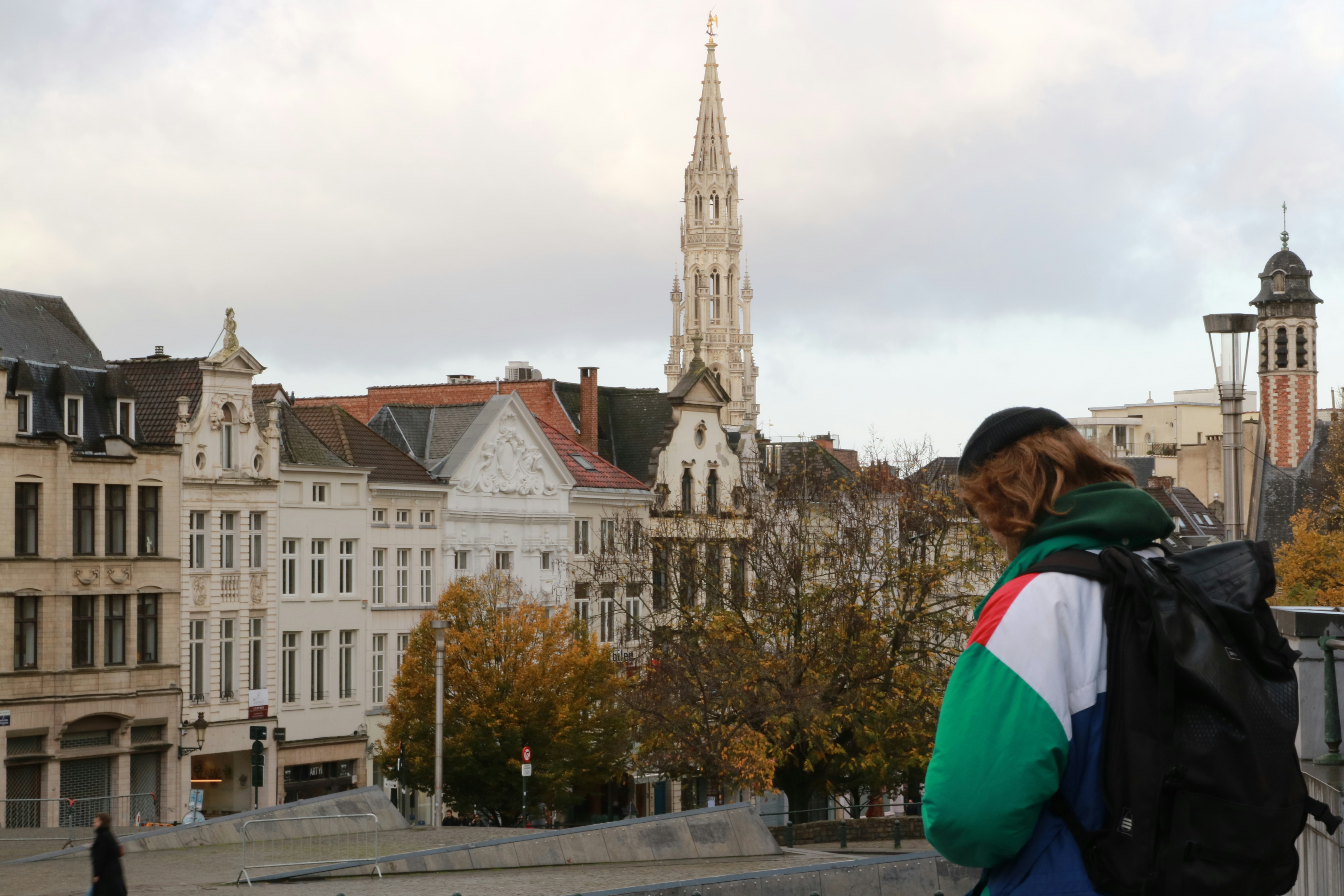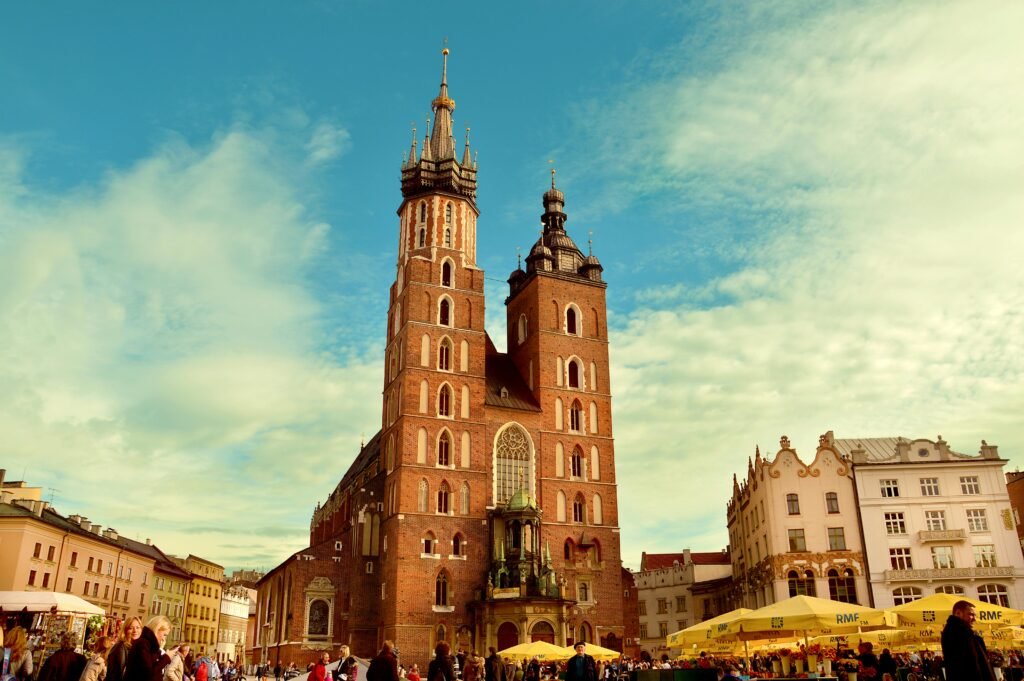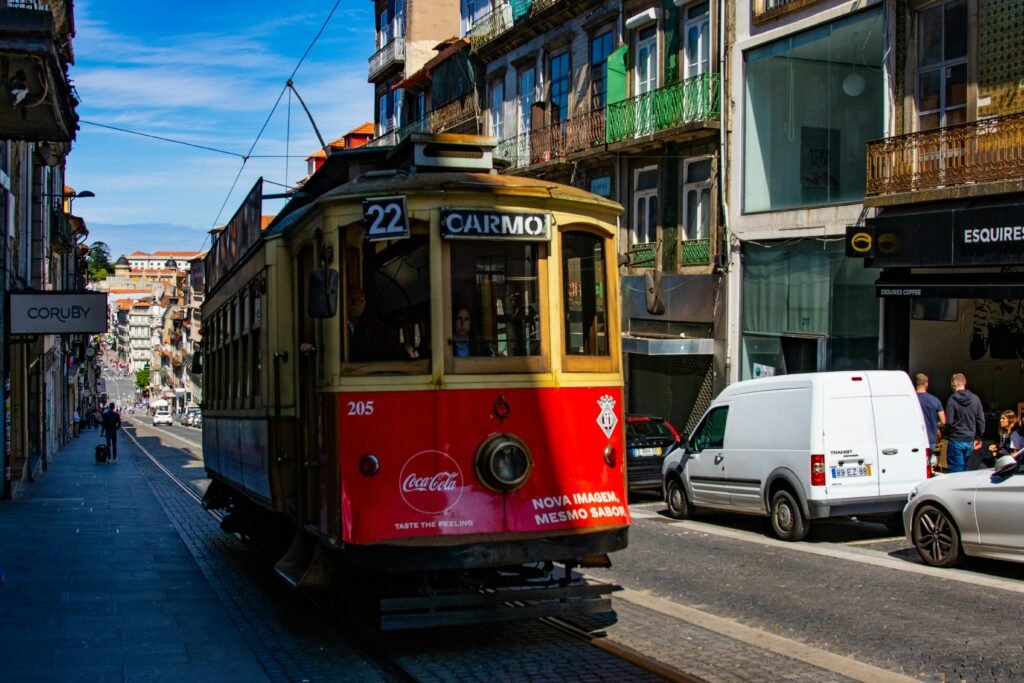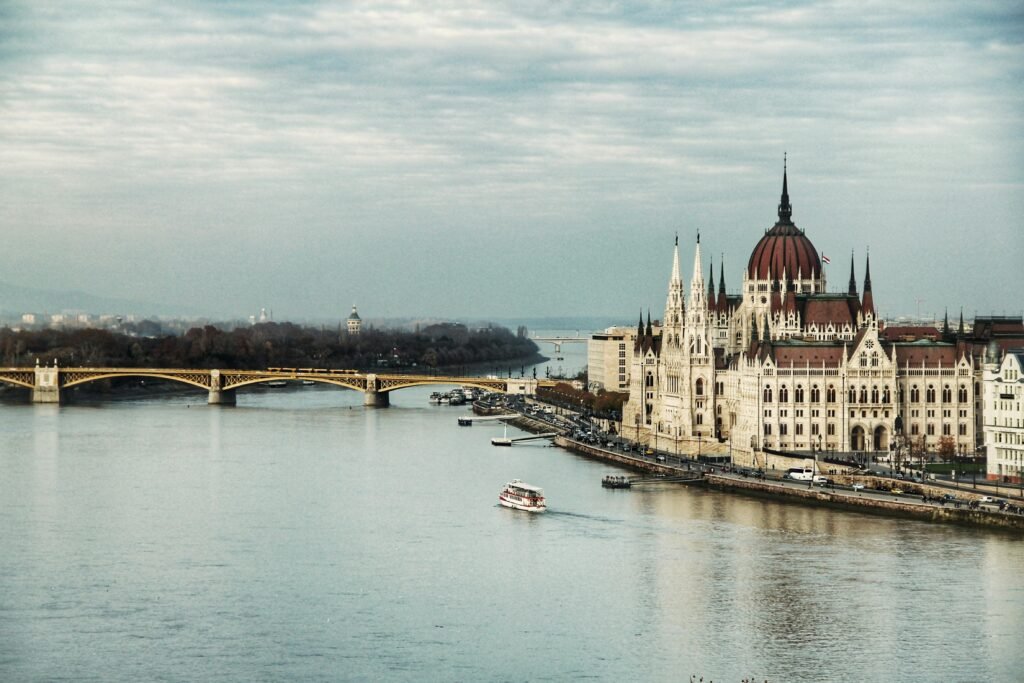The Allure of Affordable Travel
The prospect of traveling through Europe often conjures images of lavish experiences, grand monuments, and high expenses. However, the essence of affordable travel is gaining popularity as more travelers seek to explore beautiful cities without straining their finances. Budget travel in Europe not only provides an opportunity to witness stunning architecture and diverse cultures but also allows individuals to engage with local communities in meaningful ways. This approach helps travelers discover hidden gems that may be overlooked in conventional tourism, enriching their overall experience.

One of the most appealing aspects of affordable travel in Europe is the variety of experiences available at a fraction of the cost. Many European cities offer a wealth of free or low-cost attractions, from historical sites and museums to parks and local events. By prioritizing cost-effective options, travelers can indulge in authentic culinary experiences, embrace local traditions, and create memories that enrich their journey and broaden their horizons. Moreover, budget-friendly accommodations such as hostels, guesthouses, and vacation rentals provide comfortable lodging that keeps expenses manageable.
Furthermore, affordable travel opens up opportunities for extended stays, allowing adventurers to immerse themselves in the vibrant culture of their chosen destination. This extended exposure can lead to a deeper understanding of local customs, cuisine, and languages. As travelers embrace budget travel in Europe, they often find that the connections they forge and the experiences they gain transcend the thrill of visiting well-known landmarks. By capitalizing on the unique opportunities presented by affordable destinations, travelers can fully immerse themselves in the captivating allure of Europe, making their journey both enriching and economically viable.
Kraków: A Hidden Gem in Poland
Kraków, Poland’s second-largest city, stands as a testament to the nation’s rich history and vibrant culture. Nestled along the Vistula River, this city has preserved its medieval charm while blossoming into a favorite destination for travelers. Its historical significance is underscored by its designation as a UNESCO World Heritage Site, making it a must-visit for history enthusiasts.
One of Kraków’s crowning jewels is the majestic Wawel Castle, which dominates the cityscape. This iconic structure, once the residence of Polish kings, offers tourists a glimpse into the nation’s royal heritage. Visitors can explore its beautifully adorned interiors, including the crown jewels, and ascend the castle tower for panoramic views of the city. Complementing this, the historic Old Town is filled with cobblestone streets, picturesque squares, and vibrant market stalls, creating a delightful atmosphere for wanderers and shoppers alike.
The rich history of Kraków is also highlighted at the Schindler Factory, which has been transformed into a museum providing insight into World War II and the Holocaust. This poignant site not only tells the story of Oskar Schindler but also reflects the resilience of the Jewish community in Kraków. The museum’s engaging exhibits make it an essential visit for those wanting to understand this important chapter in history.

For budget travelers, Kraków is exceptionally accommodating. The city offers a wide range of affordable dining options, from traditional Polish cuisine at local eateries to international dishes in quirky cafes. Accommodations also cater to various budgets, with numerous hostels and guesthouses available. With its compelling history, stunning architecture, and vibrant atmosphere, Kraków undeniably presents an affordable yet enriching experience, ensuring that every traveler leaves with lasting memories.
Porto: A Port City with Charm
Porto, the second-largest city in Portugal, is renowned for its stunning architecture, vibrant culture, and, of course, its famous port wine. Situated along the Douro River, this picturesque city offers a unique blend of history and modernity, making it an ideal destination for budget travelers looking to explore without breaking the bank.
One of the most iconic landmarks in Porto is the Dom Luís I Bridge, a wrought-iron marvel that connects the city to Vila Nova de Gaia, where numerous wine cellars can be found. This bridge not only provides breathtaking views of the river and the city but also serves as a gateway to some of Porto’s best attractions. Walking across the bridge is entirely free, allowing visitors to soak in the stunning vistas without spending a dime.
For literature enthusiasts, Livraria Lello, often cited as one of the most beautiful bookstores in the world, is a must-visit. Although there is a small entrance fee, the intricate neo-Gothic architecture and the grand staircase are worth the price for those interested in both books and aesthetics. Additionally, the Ribeira district, with its colorful houses and lively atmosphere, is perfect for leisurely strolls, offering plenty of opportunities to take photographs and engage with local culture.

Porto also excels in providing budget-friendly activities. Travelers can indulge in traditional Portuguese cuisines at local tascas, where dishes like “francesinha” and fresh seafood are both delicious and affordable. Furthermore, options for accommodation range from hostels to charming guesthouses, catering to all preferences while ensuring comfort without a hefty price tag. By choosing to explore Porto’s delightful offerings, visitors can experience the city’s rich culture and warm hospitality without overspending.
Budapest: The Pearl of the Danube
Budapest, the capital city of Hungary, often referred to as “The Pearl of the Danube,” is a vibrant cultural hub that draws millions of visitors each year. Its stunning skyline, majestic architecture, and rich history combine to create a city full of charm and character. Key landmarks such as Buda Castle and the Hungarian Parliament Building epitomize the city’s grandeur, while the soothing waters of its famous thermal baths offer relaxation and rejuvenation to those who seek it.
One of the must-visit destinations is Buda Castle, perched atop Castle Hill. This UNESCO World Heritage Site not only provides a glimpse into Hungary’s royal past but also offers spectacular views of the Danube River and the city below. Equally impressive is the Hungarian Parliament Building, famed for its neo-Gothic architecture, which can be explored through guided tours. Another highlight is the Széchenyi Thermal Bath, one of the largest and most iconic thermal baths in Europe, where visitors can unwind in its natural hot springs.
Traveling in Budapest does not have to be expensive. Many attractions are available at little to no cost, with numerous free walking tours around the city that provide insights into the culture and history, showcasing hidden gems and providing a local perspective. Using the city’s efficient public transport system can also ease the burden on the wallet; purchasing a travel card can help visitors save money on unlimited travel on buses, trams, and metros.
For affordable dining options, Budapest is home to many eateries that cater to all budgets. Street food markets, such as the Great Market Hall, provide delicious traditional dishes at reasonable prices, offering an authentic culinary experience. By exploring these highlights, travelers can enjoy Budapest’s rich culture and history without overspending, making the city a perfect destination for budget-conscious explorers.

Budget-Friendly Activities to Enjoy in Europe
When traveling through Europe on a budget, engaging in activities that are both affordable and enriching is key to creating memorable experiences. One of the most enjoyable and cost-effective ways to explore a new city is by participating in walking tours. Many European cities offer free walking tours, which operate on a tip-based system. These tours not only provide insight into the local history and architecture but also allow travelers to discover hidden gems that may not be found in guidebooks. Knowledgeable guides often share engaging stories, giving a deeper understanding of the city’s cultural landscape.
Local markets are another fantastic option for budget-conscious travelers. Visiting open-air markets not only offers a chance to sample authentic regional cuisine at affordable prices but also serves as an excellent opportunity to interact with local vendors and artisans. From fresh produce to handmade crafts, these markets are vibrant hubs of community life and offer a unique glimpse into everyday customs and practices. Additionally, picking up a snack or meal from these markets can be a delightfully cost-effective way to experience the local flavors without overspending.
Furthermore, many cities host free festivals or cultural events throughout the year. These can range from music festivals to art exhibitions, allowing travelers to immerse themselves in the local culture without incurring costs. Many European capitals offer outdoor concerts and exhibitions during the summer months, transforming public spaces into stages for art and entertainment. Engaging in such activities fosters a sense of belonging and connection to the city, making for an enriching travel experience.
By choosing budget-friendly activities, travelers can enjoy all that Europe has to offer while remaining mindful of their expenses. Embracing the local culture through walking tours, markets, and free events ensures an unforgettable adventure without breaking the bank.
Local Cuisine on a Budget: Eating Well for Less
Exploring local cuisine is one of the most rewarding aspects of traveling, particularly in Europe, where culinary traditions are as diverse as the cultures themselves. However, travelers on a budget may wonder how to experience authentic flavors without straining their finances. Fortunately, many European cities offer a plethora of options for enjoying local dishes at an affordable price.
Street food stands and markets are excellent places to begin your culinary adventure. In cities like Barcelona, visitors can indulge in tapas such as patatas bravas or jamón ibérico, typically sold at reasonable prices. Similarly, in Berlin, local favorites like currywurst or döner kebabs can be enjoyed for a fraction of a sit-down restaurant meal. These options not only provide a taste of the region’s culinary heritage but also allow travelers to eat on the go, maximizing their time sightseeing.
Another great way to enjoy local fare without breaking the bank is to seek out cozy bistros, family-run establishments, or food stalls that feature daily specials. In Rome, for instance, trattorias often offer delicious homemade pasta at much lower prices during lunch hours compared to dinner. By asking locals for recommendations, one can discover hidden gems that might not be featured in typical tourist guides.
Additionally, many cities host food markets or festivals that showcase regional cuisine from local artisans, usually at prices that cater to budget-conscious travelers. For example, Lisbon’s Mercado da Ribeira illustrates the city’s rich culinary landscape and offers dishes at various price points. Eating where the locals do not only saves money but also enhances the cultural experience, fostering a deeper connection with the destination.
In conclusion, enjoying local cuisine on a budget is entirely feasible in Europe. By utilizing street food, local eateries, and markets, travelers can savor delectable dishes while managing their expenses, ensuring that their travel experience is both fulfilling and economical.
Transportation Tips for Budget Travelers
When exploring Europe on a budget, understanding the transportation options available can significantly enhance your travel experience while keeping expenses in check. Europe boasts robust public transportation systems, including buses, trams, and metros, which are often the most economical means of getting around within cities. Most significant urban areas offer single ride tickets, day passes, and multi-day travel cards that provide unlimited travel within a specified period, yielding substantial savings for budget travelers.
Walking is another fantastic way to explore cities. Many European cities are compact and pedestrian-friendly, allowing travelers to discover hidden gems while enjoying the local atmosphere. Notably, walking can save money and offer a unique perspective of the city, making it an ideal option for those who appreciate leisurely strolls through historic districts.
For those looking for a more adventurous and environmentally friendly way to navigate, bike rentals are increasingly popular. Cities such as Amsterdam, Copenhagen, and Paris have extensive bike-sharing programs, making cycling an appealing and cost-effective option. Many rental services provide hourly or daily rates, ensuring that even those on a tight budget can enjoy this mode of transport.
When traveling between cities, budget airlines and train services present viable alternatives for minimizing travel expenses. Low-cost carriers operate numerous routes across Europe, offering competitive fares if booked in advance. However, be mindful of extra fees for luggage or additional services that may apply. Alternatively, trains allow for comfortable travel with scenic views, and many rail services provide discounts during off-peak hours. Utilizing these services, combined with local transportation methods, can dramatically reduce your overall travel expenses while maximizing your European adventure.
Tips for Finding Affordable Accommodations
When planning a trip to Europe on a budget, one of the most significant expenses to consider is accommodation. To find affordable places to stay, travelers should explore a variety of options that fit within their financial parameters. This includes hostels, budget hotels, and alternative lodging such as Airbnb, which often provide cost-effective solutions.
Hostels are an excellent choice for budget-conscious travelers. They offer dormitory-style rooms at prices that typically range from €15 to €40 per night, depending on the city and time of year. Many hostels also provide private rooms at reasonable rates, which can be appealing for couples or those seeking more privacy. In addition to being affordable, hostels often foster a social atmosphere, making them a great way to meet fellow travelers.
For those who prefer a hotel environment, several budget hotel chains operate across Europe, offering comfortable accommodations without breaking the bank. Brands such as Ibis, Premier Inn, and Travelodge provide clean and convenient lodging often starting at around €50 per night. It’s advisable to book these options in advance, as prices can increase as the travel date approaches.
Another option is to consider alternative lodging through platforms like Airbnb. This can provide unique accommodations, from apartments to shared spaces, often at lower prices than traditional hotels. Booking well in advance can help secure better deals as property owners frequently offer discounts for early reservations. Additionally, remaining flexible with travel dates can allow travelers to take advantage of lower prices during off-peak seasons.
When seeking budget accommodations, keep an eye out for promotions, last-minute deals, and loyalty programs that can further reduce costs. By comparing various platforms and being strategic about booking, travelers can enjoy their stay in Europe without exceeding their budget.
Conclusion: Travel More, Spend Less
Traveling across Europe offers a wealth of experiences, and it need not be a financially burdensome endeavor. As highlighted in this exploration of budget-friendly cities, Europe is home to numerous destinations that provide remarkable cultural experiences without the hefty price tag typically associated with travel. Cities such as Kraków, Porto, and Budapest epitomize this concept, showcasing that affordable options abound for those willing to seek them out.
Kraków, with its rich historical background and enchanting architecture, is a prime example of how one can immerse in culture while being budget-conscious. Visitors can enjoy free walking tours, explore museums on discounted days, and savor local cuisine at pocket-friendly establishments. Similarly, Porto charms travelers with its picturesque landscapes and famous wine. This coastal city offers numerous attractions, from the scenic Ribeira district to delightful food markets, all accessible without straining financial resources.
Budapest stands out as another city that blends affordability with an eclectic mix of history and modernity. The thermal baths, vibrant nightlife, and captivating sights across the Danube River can all be experienced on a modest budget. The availability of public transport, inexpensive dining options, and numerous free attractions make Budapest an ideal destination for budget-conscious travelers.
Ultimately, the narrative surrounding travel should shift from a focus on expense to one of opportunity. Travelers are encouraged to embrace these affordable alternatives across Europe, paving the way for unforgettable adventures without excessive financial strain. Whether through rich history, stunning landscapes, or delicious gastronomy, unforgettable European experiences await those willing to travel smartly and efficiently. By opting for budget-friendly cities, one can truly travel more while spending less, making a rewarding journey accessible to all.






